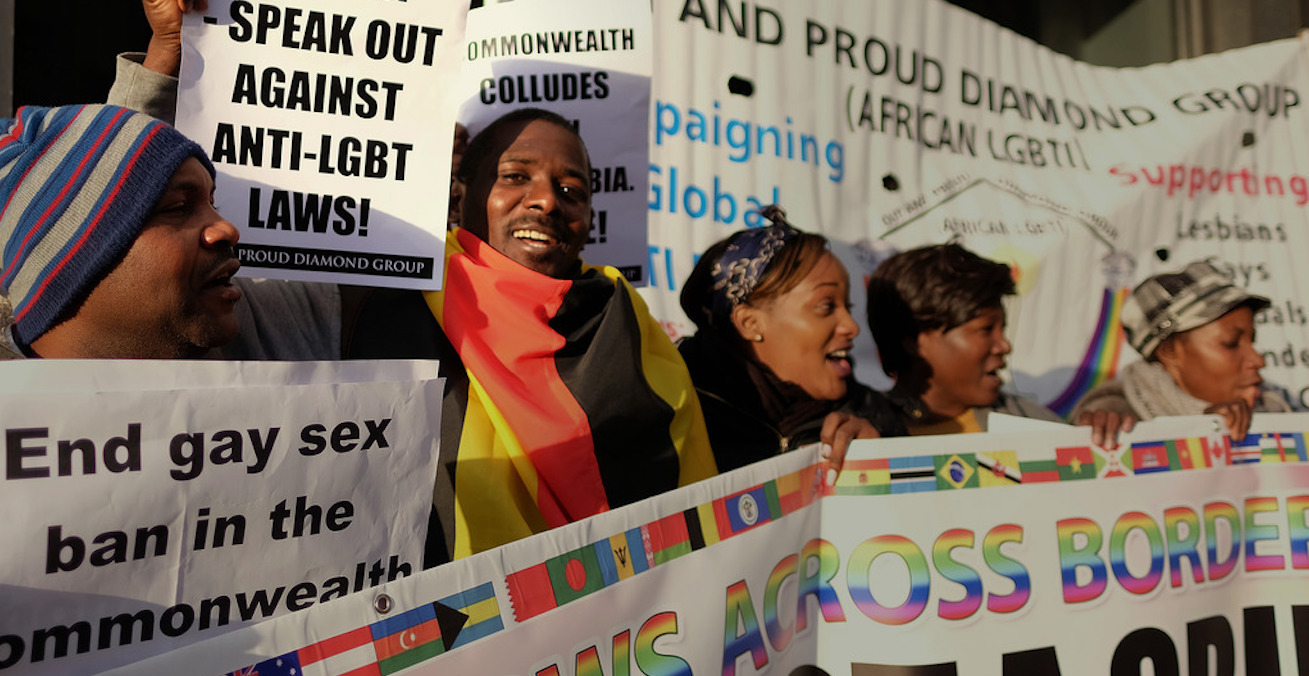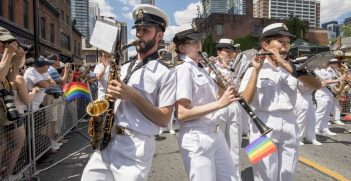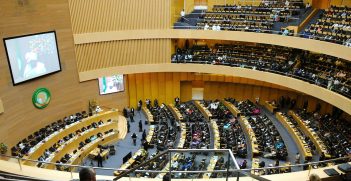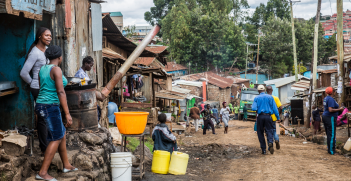LGBTI Rights in Africa

When it comes to LGBTI rights in Africa, arguing against Western interventionism is a front for advocating the maintenance of discriminatory anti-LGBTI legislation. Ahead of the International Day Against Homophobia, Transphobia and Biphobia, it should be argued that it is homophobia rather than homosexuality that is un-African.
At the Commonwealth Heads of Government Meeting in April, British Prime Minister Theresa May called for African leaders to overturn discriminatory legislation that legalises persecution of and violence against LGBTI communities, while acknowledging that the existing anti-LGBTI legislation was inherited from former colonial powers, including Britain.
Recently, Ghana’s Speaker of Parliament, Professor Aaron Mike Oquaye, accused Western powers of forcing African leaders to accept homosexuality by exerting pressure for the introduction of anti-discrimination legislation to decriminalise homosexuality and protect the country’s LGBTI communities. Professor Oquaye argued that because African leaders are accountable to their constituencies, they could not go against majority opinion by introducing such legislation. Oquaye further stated that given there are “more pressing” issues to be addressed than homosexuality in Ghana, including poverty, the conversation about LGBTI rights should not be a priority.
More extreme is the argument of some analysts which amounts to the claim that the Africanisation of existing political systems would bring with it the right to discriminate against African LGBTI people. Africanisation or anti-interventionism is implicitly cast as the path towards unfettered anti-LGBTI discrimination. Oquaye’s comments, reflective of Ghanaian President, Nana Akufo-Addo’s own sentiments and those of the majority of African leaders, are a thinly-veiled argument against homosexuality itself, rather than Western interventionism.
Homophobia as un-African?
Many claims abound about the “un-African” nature of homosexuality, which is cast as a Western import that undermines “African values”. The assumption is that homosexuality did not exist in pre-colonial African times and was “introduced” through colonisation. Moreover, it is considered “un-African” because, presumably, same-sex attracted individuals lack the capacity to reproduce or build families, whereas “Africanity” is dependent upon this very ability. Where proponents of this argument grant that same-sex attracted people do not lose their biological ability to reproduce simply by virtue of being same-sex attracted, the argument becomes one of concern about the well-being of children of same-sex couples. Such an argument is forgetful of the fact that abuse is neither specific nor exclusive to LGBTI parenting and that values about how best to raise children are always subject to contestation.
Regardless, arguments about the so-called “un-African” nature of homosexuality are weak given the heterogeneous and diverse nature of African identities, cultures, values and histories. Moreover, prior to the Transatlantic Slave Trade and colonisation, a broad “African” identity did not exist outside of the European colonial imagination. Ideas about “Africanity” are constantly in flux; they are contested and the subject of ongoing redefinition. Arguably, it is homophobia rather than homosexuality that is un-African, given it is not in keeping with the African spirit of Ubuntu: a belief in community, togetherness, tolerance and that “I am, because you are, because we are”. Ubuntu cannot be narrowly defined in order to justify violence, discriminatory acts and practices; whereas anti-LGBTI discrimination and homophobia creates a culture of intolerance.
Civic education is therefore required in order to build inclusive and tolerant societies and for people to be informed that same-sex relationships have been present since before colonisation. Even where a historical argument cannot be easily made about the presence and/or prevalence of same-sex relationships and practices in pre-colonial Africa, this should not be used to justify discrimination and violence. It is imperative upon each of us to promote and protect the rights and wellbeing of every member of our societies. This position is in keeping with most religious traditions’ recognition that judgment is wholly reserved for God, with people cautioned against passing judgment against others whom, like them, are created in God’s image, given that those passing judgment are themselves flawed.
Finally, there is the straw man argument that asks, “Where do we draw the line”? This argument does not address the issue of love or intimacy between two people of the same sex, but instead against inter-species relations, which is not at all what LGBTI activists and advocates are arguing for. Nevertheless, it is a straw man that is effective at rousing fear in conservative minds.
Next steps for Africa
When it comes to LGBTI rights in Africa, arguing against Western interventionism is a front for advocating the maintenance of discriminatory anti-LGBTI legislation. It is an old line of argumentation. Former Zimbabwean president Robert Mugabe was well-known for his public proclamations that LGBTI communities are Western imports. Yet, as Africans, the moment we stop viewing other Africans’ lives and well-being as less than our own is the moment the majority of the continent’s problems will be resolved. LGBTI communities must be part of our vision for an inclusive and tolerant Africa, including the restructuring of our political systems.
Tinashe Jakwa is a doctoral researcher at the University of Western Australia. She is studying how liberal institutions and norms increase state instability in Africa.
This article is published under a Creative Commons Licence and may be republished with attribution.





